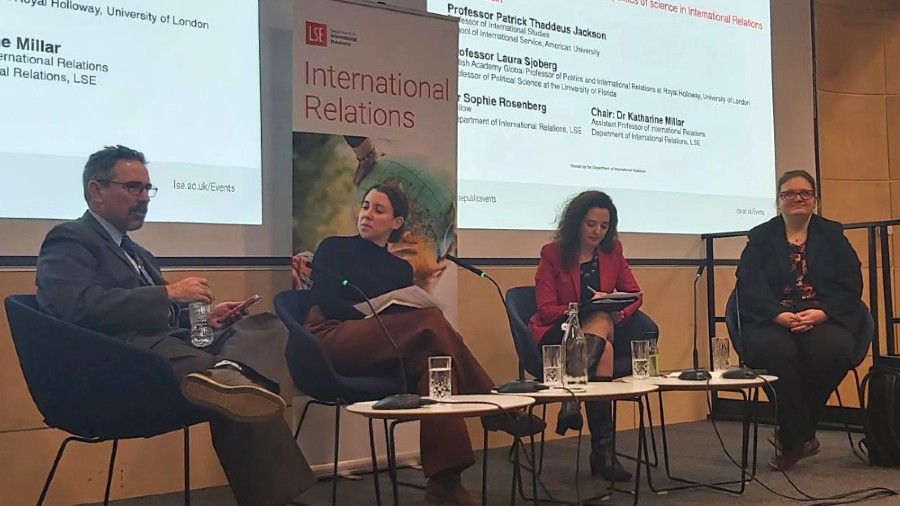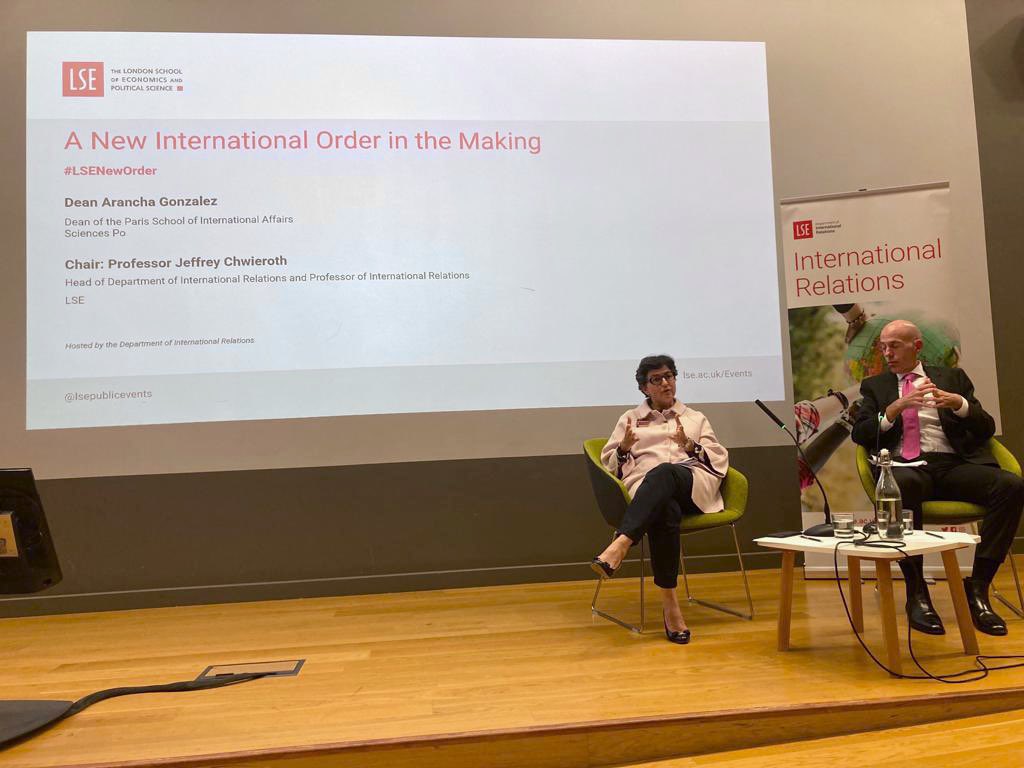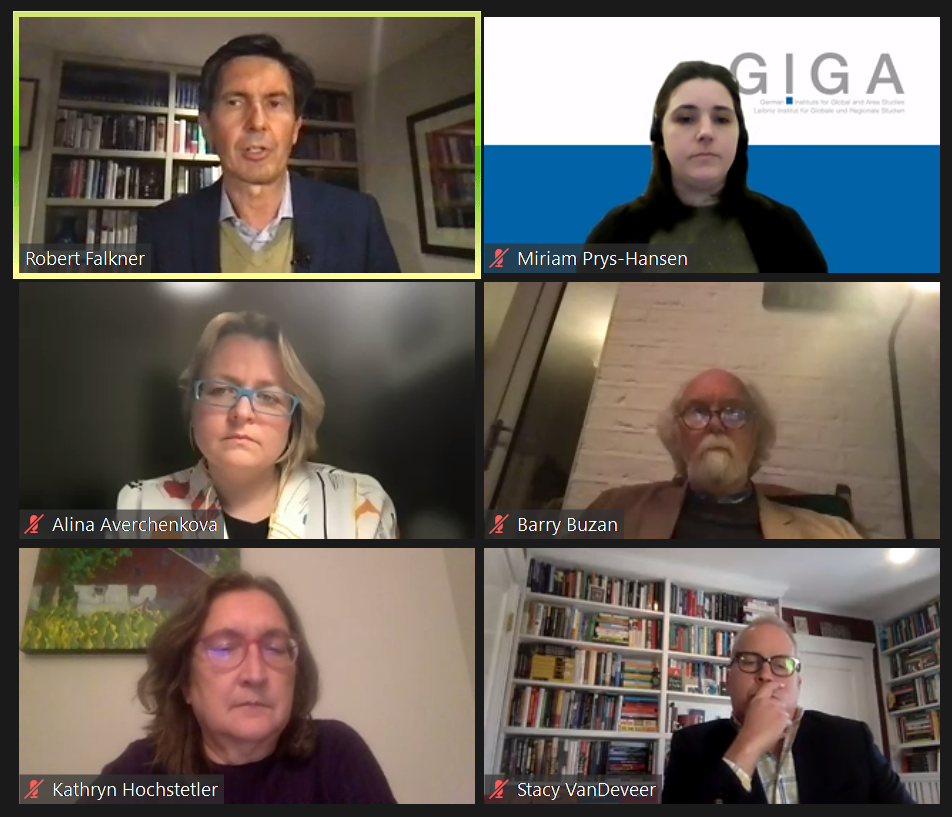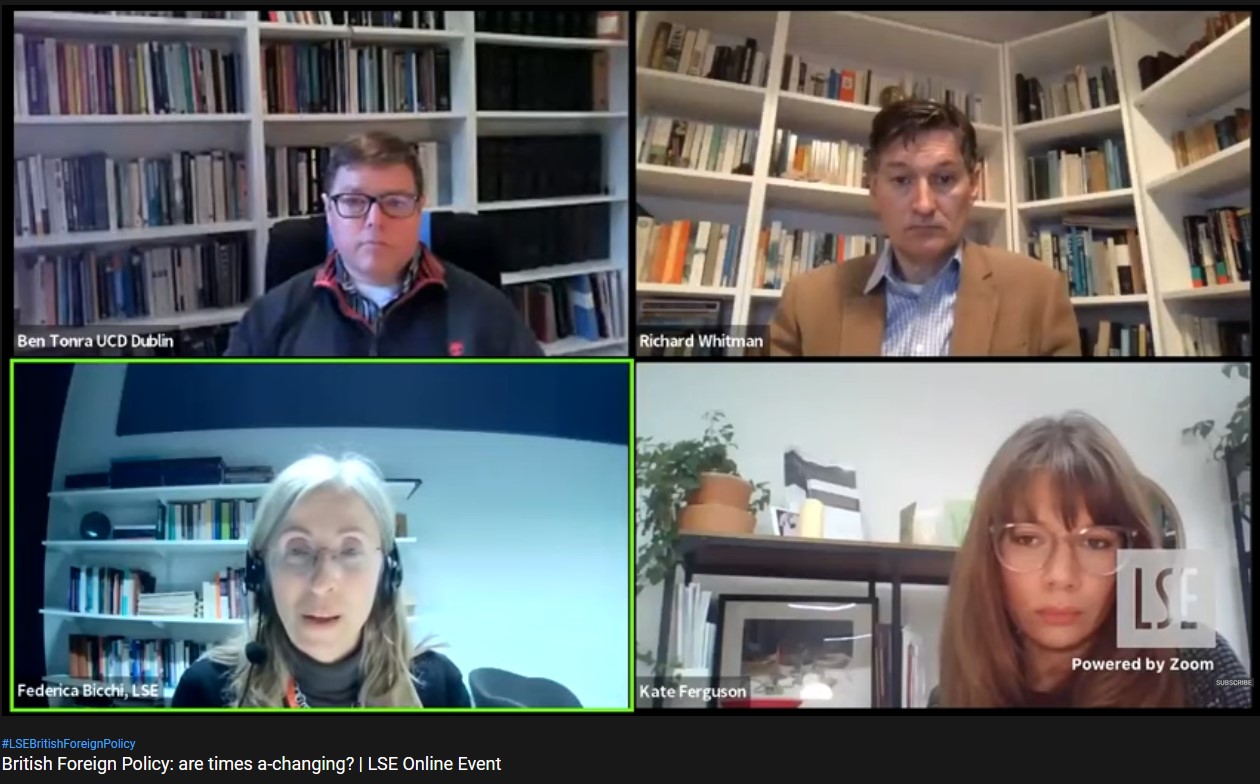On Thursday 17 November 2022, Patrick Thaddeus Jackson, Professor of International Studies in the School of International Service at American University Washington DC, was in conversation with Laura Sjoberg, British Academy Global Professor of Politics and International Relations at Royal Holloway, University of London, and Professor of Political Science at the University of Florida, and Sophie Rosenberg, Fellow in the Department of International Relations, LSE. They discussed the contemporary politics of science in International Relations and explored the meaning and deployment of “facts” within international politics.

L to R: Patrick T Jackson, Katharine Millar (Chair), Sophie Rosenberg, Laura Sjoberg
Western societies are proud to be free of religious dogma. We have supposedly renounced superstition, progressing into a rational age in which evidence rules. In pandemics, we are told to follow the science; when voting, perhaps, the experts. Yet in parallel, some warn of a post-truth age, in which factuality itself is increasingly politicised. Can we make up our minds – or do we all want our own facts?
Patrick Thaddeus Jackson opened the discussion by drawing upon Wittgenstein’s philosophy. Facts are not ‘out there’ in the world, he argued, but conventional, established within linguistic communities by common consent. For Professor Jackson, our problem is expecting too little and too much. Too little is to claim that facts are no more than strongly-held opinions. Too much is to view facts as prescribing action. We can say whether a policy is fact-based, but facts don’t create policies, politicians do.
Rather than disputing policies, some politicians prefer to reject their truth basis altogether. Calling the 2020 U.S. election ‘stolen’ may be useful, but for speech effects, not its veracity. Professor Jackson argued that we should rescue facts from this nebulous state. ‘Alternative facts’ must be exposed for what they are: counterfeits.
‘Alternative facts’ must be exposed for what they are: counterfeits.
Sophie Rosenberg progressed by exploring a ‘right to facts’. Governments worldwide have jumped on an emerging norm to shelter their citizens from falsehoods. Is this a dangerous precedent? Dr Rosenberg drew upon India’s Narendra Modi, who ordered Twitter to remove critical content during his re-election campaign. Epistemic security – being able to access and debunk truth-claims – is necessary. State intervention, however, carries risk.
This led to the question: who chooses what is factual? ‘Facts’, argued Laura Sjoberg, can be just as dangerous as ‘falsehoods’. To call something factual elevates it above the subjective, enabling those in authority to declare what is true, and invalidating emotions and histories in the process. ‘True’ facts are also weaponised; the fact/falsehood dichotomy expresses and perpetuates power imbalances.
Are facts the only sound basis for policy? Or is our obsession with evidence symptomatic of what Weber called the entzauberte Welt: a ‘disenchanted’ world that stresses – and weaponises – facts above all else?
To call something factual elevates it above the subjective, enabling those in authority to declare what is true, and invalidating emotions and histories in the process.
Event report by Stanislaus Huepfl, BSc Politics and International Relations





